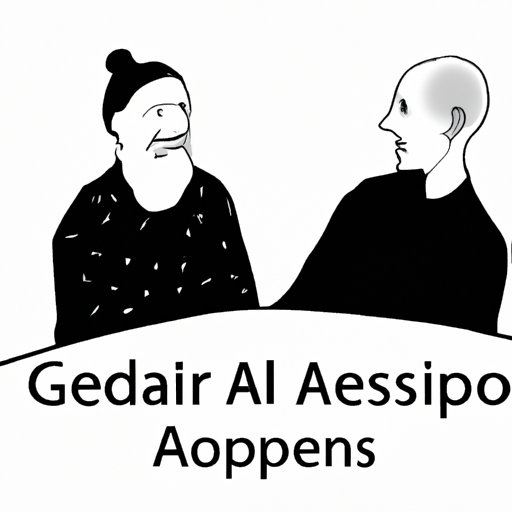Why Do I Like Older Men? Exploring the Complexities of Age-Gap Relationships
Age-gap relationships are a subject of controversy. People often judge and scrutinize these relationships, especially when women are involved. While society has come a long way in terms of accepting different sexualities and gender identities, it still has a long way to go in accepting age-gap relationships. In this article, we will explore why some women prefer older men and provide insights for our audience.
First-Person Narrative Approach
I remember the first time I felt attracted to an older man. I was a teenager, and he was in his early thirties. It felt like a taboo, but I couldn’t help my feelings. Eventually, we started dating, and we had a great time together. I’ve had several relationships with older men since then, and I’ve come to realize that it’s what I prefer.
For me, older men are more mature, reliable, and experienced. They know what they want in life, and they’re not afraid to go after it. They have already gone through the trials and tribulations of youth, and they’re more settled in life. Being with an older man makes me feel secure, and I know that he has my back.
Of course, there are challenges that come with dating someone who is significantly older. There are different cultural references and slang that I sometimes don’t understand. It’s also sometimes hard to relate to his life experiences, especially if he has children or if he’s been through a divorce. However, these challenges are outweighed by the benefits I receive from the relationship.
Psychological Perspective
There are psychological reasons why women may prefer older men. Some of these reasons are conscious, while others are unconscious. One conscious reason is that older men are often financially stable and can provide for their partner. This can be a big draw, especially for women who have struggled financially or who are looking for someone who can support them.
Unconscious reasons can be more complex. Some women may be seeking a father figure or a strong male presence in their life. The attachment theory suggests that the way we relate to people in our lives is shaped by our experiences with our primary caregivers. If we grew up without a strong male presence, we may seek that out later in life.
It’s also possible that women who prefer older men have a certain attachment style. For example, anxious-attachment individuals may be attracted to older men because they are more likely to provide stability and security.
Cross-Cultural Perspective
Cultural and social norms play a large role in determining our preferences. In some cultures, age-gap relationships are more common and accepted than in others. For example, in certain parts of Africa, it is customary for older men to take younger wives. This is seen as a sign of wisdom and status.
In other cultures, age-gap relationships are seen as taboo. This is especially true in Western cultures, where youthfulness is highly valued. There is a perception that women who date older men are “gold diggers” or that the men are “creepy.”
Sociological Perspective
Age-gap relationships have social implications that can lead to stigma and discrimination. Society tends to view age-gap relationships through a heteronormative lens, assuming that the older partner is male and the younger partner is female. Same-sex age-gap relationships are often overlooked or ignored.
There is also a power dynamic at play when it comes to age-gap relationships. The older partner is often seen as having more power, and the younger partner is seen as being more vulnerable. This can lead to concerns about coercion or manipulation.
Legal implications can also be a concern. Age of consent laws vary from country to country, and in some places, it may be illegal for an older person to enter into a relationship with a younger person.
Historical Perspective
Age-gap relationships have been around for a long time. In fact, many historical figures have been involved in such relationships. One of the most famous examples is Cleopatra, who was 22 when she met Julius Caesar, who was 52 at the time. She went on to have relationships with other older men, including Mark Antony.
In more recent times, age-gap relationships have become more accepted. This is partly due to the changing attitudes towards sexuality and gender, but it’s also because people are living longer and healthier lives. Traditional gender roles are also breaking down, which means that younger women are not expected to date and marry men who are their exact age.
Expert Opinion
According to sex therapist Vanessa Marin, age-gap relationships can be healthy and fulfilling as long as both partners are on the same page. She suggests that communication and honesty are key, and that each partner needs to be aware of the challenges that come with the relationship.
Psychologist Dr. Laura F. Dabney suggests that women who prefer older men may benefit from therapy to explore their reasons for this preference. She notes that it’s important for women to make sure that their attraction isn’t based on unresolved psychological issues.
Conclusion
In conclusion, age-gap relationships are not inherently wrong. Women who prefer older men have a variety of reasons for their preferences, both conscious and unconscious. Understanding and acceptance of these preferences is crucial for creating a more inclusive and accepting society. It’s time to move beyond judging and scrutinizing age-gap relationships and start embracing them for what they are: loving and fulfilling partnerships.
